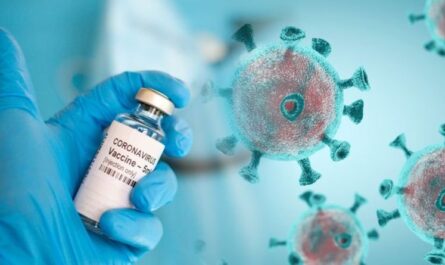Introduction
What is Biohacking?
Biohacking refers to experimenting with your own biology through genetic modification, implanting medical devices, or through other means to improve or enhance human performance and capabilities. Biohackers are interested in modifying the human body through science and technology with the goal of taking human evolution into our own hands.
Early forms of Biohacking
While the term ‘biohacking’ may be relatively new, the concept of altering or enhancing human biology has existed for centuries. Some examples of early forms of biohacking include:
Intentional Evolution
Since the beginning of civilization, humans have been modifying their genes through selective breeding to enhance certain desirable traits over many generations. Early farmers selected crops and livestock with traits like increased size or yield, effectively biohacking through intentional evolution.
Body Modification
Ancient cultures around the world engaged in practices like piercing, scarification, teeth modification and tattooing to change their appearance for aesthetic, ceremonial or functional purposes long before modern body modification became popular. These early modifications can be seen as primitive forms of Biohacking the human body.
Prosthetics and Implants
Archaeological evidence shows that as early as 600 BC, prosthetic toes made of leather and wooden toes were used by ancient Egyptians and Greeks who had lost their own toes. These early prosthetics allowed recipients to maintain mobility, and can be viewed as a precursor to modern implanted medical devices.
Thus the roots of biohacking stretch back deep into history, even if the tools and methods are more advanced today. Humans have always been driven to enhance and alter their bodies using the science and technologies available at the time.
Modern Forms of Biohacking
DIY Biology and Citizen Science
With advanced at-home science kits and open-source lab equipment, amateur biohackers are conducting genetic engineering and other biological experiments in home labs. Groups like DIYbio promote democratizing biology research through do-it-yourself methods.They argue ordinary citizens have a right to understand and participate in manipulating their own biology and life processes. Groups like BioCurious provide community lab access for citizen scientists and biohackers.
Genetic Modification
Some modern biohackers are attempting genetic modification through techniques like Crispr gene editing. Crispr allows targeted DNA modification, enabling potential enhancement of traits in humans. Josiah Zayner conducted the first self-experiment by attempting to modify his own muscle cells for increased growth. Others aim to genetically modify humans for protection against diseases. However, genetic modification raises serious ethical concerns and regulatory issues that biohackers contend stifle progress and personal autonomy over one’s own biology.
Implanted Devices and Sensors
Grinders and body mod enthusiasts routinely implant small objects like magnets or microchips under the skin for novelty and to enhance certain senses. Some biohackers are implanting sensors to continuously monitor things like glucose, toxins or electromagnetic waves invisible to humans.Startup Anthropic aims to develop neural implants to enhance brain function. However implanted devices also have risks of rejection, infection, unknown long term effects, and compatibility issues.
Pharmacology and Nootropics
Some Biohacking are experimenting with untested medications, supplements or nootropics to enhance mental and physical traits. Many unregulated compounds hold unknown risks to health and safety from long term use or side effects when used without clinical oversight. Biohackers believe individuals have a right to experiment on themselves and access any substances that could enhance humanity.
Challenges and Controversies of Biohacking
Regulation and Ethics
Regulatory agencies like the FDA argue biohacking should face stricter oversight due to risks of unknown side effects, harms, or ethical issues from amateur experimentation. Unauthorized human experiments raise ethical concerns around patient safety, informed consent, long term effects. However, biohackers counter that over regulation stifles scientific progress and personal autonomy. Where should the line be drawn between liberty and safety?
Safety and Health Risks
Many new biohacking techniques are experimental and untested with potential for unintended harm. Gene drives could irreversibly alter ecosystems. Implants or crispr could trigger unexpected immune responses or long term side effects. Unregulated nootropics pose toxicity risks especially with recreational use. Biohackers responding they research cautiously and risks are often exaggerated. But who bears liability for any harm from amateur experimentation?
Equal Access and Anti-aging
Critics argue only wealthy people may access advanced anti-aging therapies from biohacking. Lower income groups will be left behind, exacerbating health and longevity inequality. Biohackers counter they advocate for open source biotechnology benefiting all humanity, not just an elite few who can afford it. But how to ensure equal access to any biology-altering technologies developed through grassroots innovation?
Future Prospects
Personalized Medicine
As biosensors continuously monitor health and genomic databases expand, biohackers envision a future where we can precisely customize medical treatments and preventative care based on an individual’s unique biological makeup and environment. Real-time diagnostics and preventive adjustments could optimize everyone’s health and longevity at low cost.
Enhanced Humans
Technologies to enhance sensory perceptions, physical abilities, immune systems, brain function or reverse biological aging are increasingly within reach. Implanted computer interfaces could accelerate information processing and unlock rich virtual realities. Genetic engineering may eliminate inherited diseases and greatly expand the natural human lifespan. However, policymakers and regulators will play a key role in shaping how and if such capabilities are developed and accessed.
Grassroots Innovation
Biohacking advocates argue oversight should balance innovation and safety to allow experimentation that could discover medical breakthroughs. Citizen science may play an increasing role in driving technologies to optimize human biology if proper guidance and resources are provided to amateur researchers. Biohacking could democratize the tools to alter ourselves and revolutionize what it means to be human, for better or worse.
Whether biohacking progresses mainly through official research institutions or as an open source citizen science movement, it is evident that humanity’s ability to directly modify life is advancing rapidly. How biohacking reshapes the human experience in the coming decades depends greatly on how regulators, companies, hackers and society at large choose to guide emerging self-experimentation, biological engineering, implants and other enhancement technologies. There are risks but also potential benefits if properly stewarded. The future of what it means to be human is being shaped today through grassroots biology innovation, for good or ill.
*Note:
1. Source: Coherent Market Insights, Public sources, Desk research
2. We have leveraged AI tools to mine information and compile it



